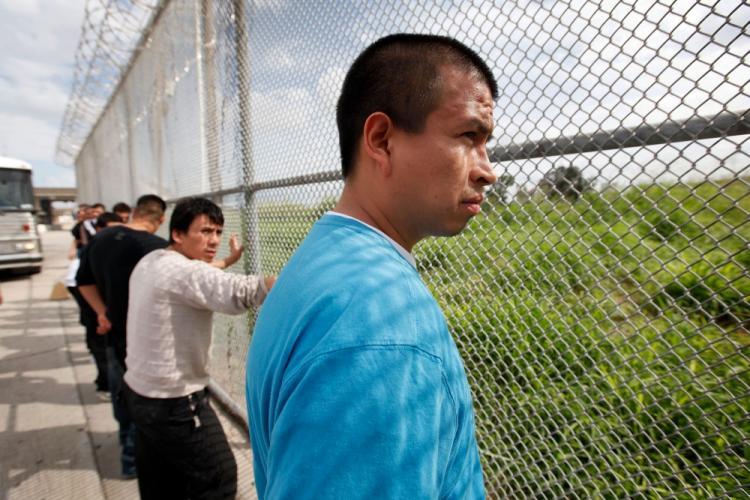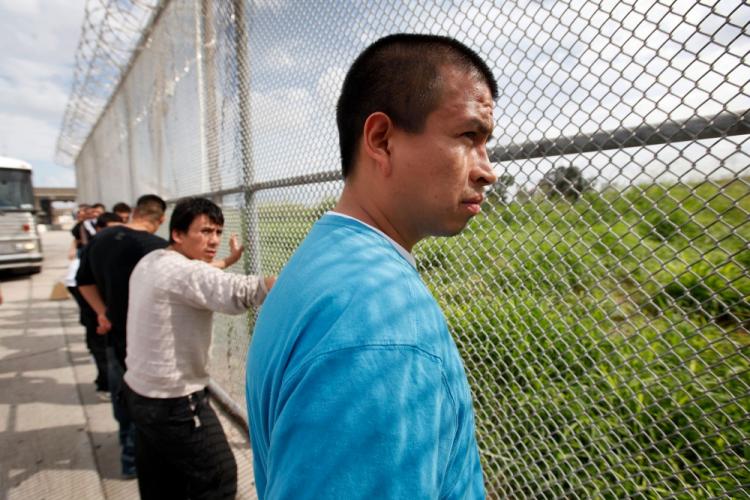US Homeland Security to Expand ‘Secure Communities’ Nationwide
The Department of Homeland Security (DHS) plans to broaden its Secure Communities program nationwide by 2013.

Mario Alberto-Lopez (R) waits to be unshackled by U.S. Immigration and Customs Enforcement (ICE) agents before being led to the Mexican border and released from custody on May 25. Scott Olson/Getty Images
|Updated:
Joshua Philipp is senior investigative reporter and host of “Crossroads” at The Epoch Times. As an award-winning journalist and documentary filmmaker, his works include “The Real Story of January 6” (2022), “The Final War: The 100 Year Plot to Defeat America” (2022), and “Tracking Down the Origin of Wuhan Coronavirus” (2020).
Author’s Selected Articles






